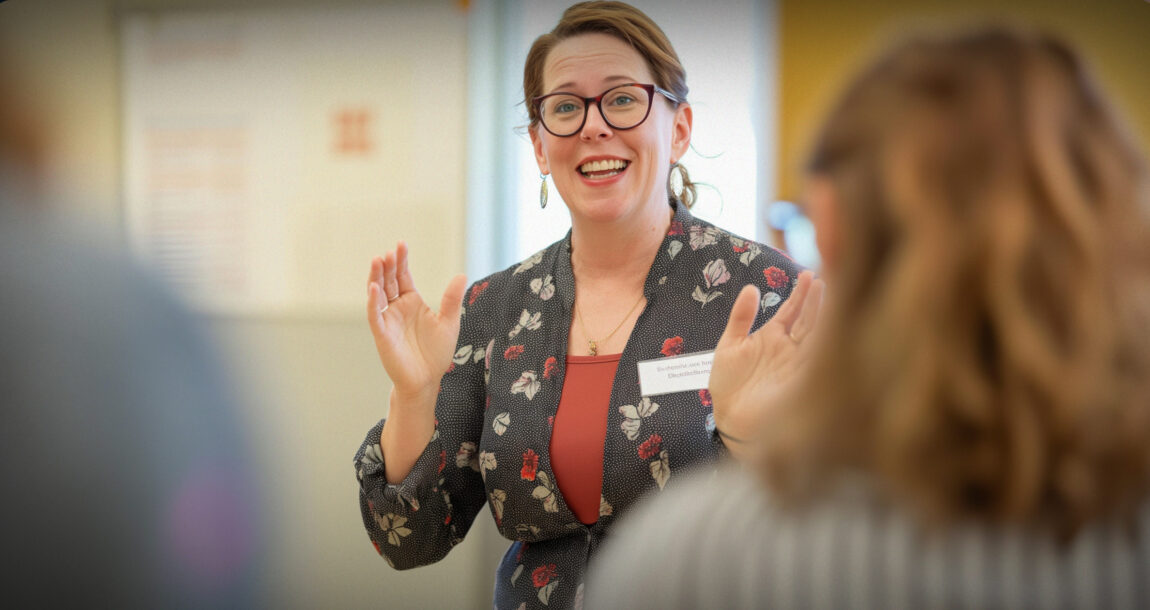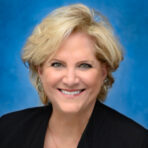Embracing community as a cornerstone of your financial services journey

Although the financial services sector is vast, the financial planning profession is equally expansive and diverse. The profession attracts individuals from all backgrounds and walks of life who want to participate in a wonderful career while engaging in rewarding work that serves clients well. But whether someone is entering the profession as a recently graduated college student, is a career-changer or has been in the profession for many years — support, guidance and encouragement from others in the profession can have a lasting, transformative impact on one’s career trajectory.
As a financial planner who has been in the profession for more than three decades, I know first-hand what it’s like to discover your place in this growing, evolving profession. And as a woman, I had my fair share of trials and tribulations early on, and having a community of peers to lean on became increasingly more important. This sense of community was crucial to my finding and achieving success as a financial planner.
Here are seven ways community has been truly transformative in my life and career.
1. Learning: Being part of a community has provided me with a wealth of knowledge that I have used to improve my skills and expertise. Those I have met and engaged with over the years are smart and willing to share, whether through online forums, in-person meetings or various mentorship programs.
2. Encouragement: Like all professionals, I have faced challenges and setbacks, but having a supportive community of peers who have offered me advice, encouragement and a sympathetic ear has made all the difference in the world.
3. Reflection: The opportunity to engage with others has helped me gain insights into my strengths, weaknesses and areas for improvement. My journey of personal growth and advancement as a financial planner is directly attributable to the community I have surrounded myself with.
4. Sharing: Resources and information are plentiful in financial services, which can be cumbersome to navigate. Finding the right information that is relevant and impactful is easier when you have a community of peers eager to share articles, resources and tools that have been impactful for them — and they know it will be equally impactful for you.
5. Well-being: Being new to the profession or trying to find your place in it can be accompanied by feelings of isolation and uncertainty. The personal interactions I have enjoyed within my community have provided a sense of connection and togetherness over the years that has helped me realize that I wasn’t in this alone.
6. Perspective: We all can be fixated on certain beliefs and ways of doing things — whether for our clients or businesses. Connecting with my peers, especially those from diverse backgrounds, has exposed me to diverse perspectives, viewpoints and new ways of tackling my work and business objectives.
7. Leadership: While being part of a community has provided me ample opportunities to better myself and my work, it is even more rewarding to use my voice and experience to help others. Because of my community participation, I have facilitated discussions, counseled others and grown as a leader.
These are just a handful of ways I have directly benefited from engaging with my professional community over the years, and the impact has truly been profound. But if you have yet to get engaged and are looking to get started, there are some things you can do to get the ball rolling.
First, focus on your personal and professional interests. Suppose you are passionate about investments, insurance, retirement planning, advocacy or pro bono financial planning. In that case, chances are established groups exist that are focused on creating community engagement on those topics. Suppose you are passionate about the issues of a specific demographic group, such as women, African Americans, Asian American/Pacific Islanders or Latinos. In that case, there are established communities where you can connect and network.
While looking to engage with a community focused on investment planning, I discovered the FPA Investment Planning Knowledge Circle, where I could find a sense of community. I raised my hand to be one of the community hosts, where I helped lead discussions. This led to my exploring other leadership opportunities in FPA, where I now serve as the volunteer national president.
Second, consider joining professional associations and organizations focusing on your area of interest. The networking, conferences, online learning and virtual forums alone provide terrific value if you want to connect with peers and learn the latest on issues of relevance to you.
Finally, attend events where you can network with other professionals and feel that sense of isolation disappear. There are likely some terrific local events available to you, especially through your local FPA chapter, but don’t overlook the impact of traveling to events outside your local area where you can meet peers from all over the country. It’s critical to grow your network and resources beyond your backyard and meet people of diverse backgrounds and business models.





LTC planning’s power lies in relationships, not revenue
Digital transformation: How tech is shaping the life insurance landscape
Advisor News
- TIAA, MIT Age Lab ask if investors are happy with financial advice
- Youth sports cause parents financial strain
- Americans fear running out of money more than death
- Caregiving affects ‘sandwich generation’s’ retirement plans
- Why financial consciousness is the key to long-term clarity
More Advisor NewsAnnuity News
Health/Employee Benefits News
- Bill aimed at holding health insurance companies accountable stalls at Capitol
- Health Insurance Subsidies Set to Expire, Threatening Coverage for Millions
- Expiring health insurance tax credits loom large in Pennsylvania
- Confusion muddies the debate over possible Medicaid cuts
- Trump protesters in Longview aim to protect Medicaid, democracy, due process
More Health/Employee Benefits NewsLife Insurance News
- IUL: Offering stability amid trade tariff uncertainty
- ‘Really huge’ opportunity for life insurance sales if riddle can be solved
- Americans fear running out of money more than death
- NAIFA eyes tax reform, retirement issues in 2025
- Legislation would change tax treatment of life insurers’ debt investments
More Life Insurance News